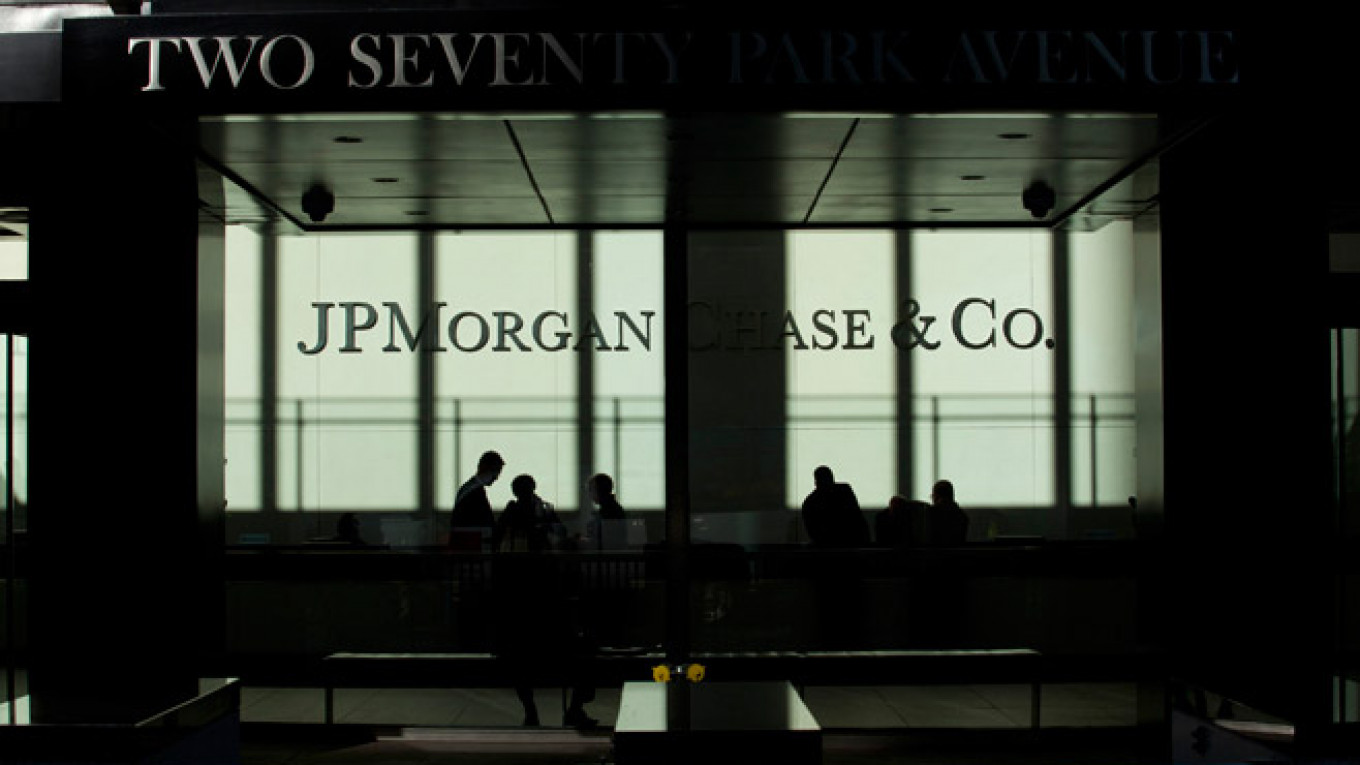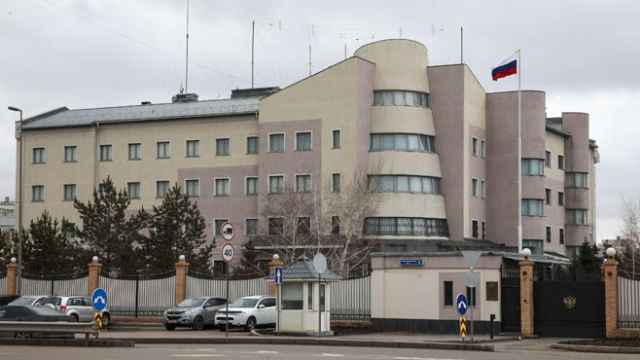NEW YORK — When JPMorgan Chase & Co agreed to lead a $700 million bond offering for Russian natural gas producer Gazprom, it was doing business that some U.S. banks are afraid to do, several lawyers and a banker said.
Gazprom faces U.S. sanctions after the U.S. government widened its restrictions against Russia in September. U.S. companies are prohibited from providing goods or technology to Gazprom and others, although they can provide financial services to the companies, meaning that JPMorgan obeyed the law in underwriting bonds for the company. Gazprom announced pricing for the deal on Thursday.
Peter Kucik, a former U.S. Treasury official who left the department in March, said that generally short-term transactions, such as underwriting bonds, should not be a problem. But he said U.S. companies need to be careful in conducting long-term business with Russian firms or banks, since sanctions could always get tougher in the future.
Some U.S. bankers would hesitate to do the business, fearing that even if it is legal, it will look bad to regulators.
"Our relationship with regulators is so important. We would not want to make them mad," said a capital markets banker at a rival firm. "No one would touch it with a 10-foot pole here."
Some banks' hesitance to underwrite these sorts of bonds underscores the frostiness in relations between banks and their regulators since the financial crisis. Big banks globally face much tighter restrictions on their activity after the financial crisis of 2008 and have paid tens of billions of dollars in fines for violations over the past few years.
One lawyer who works extensively with sanction matters said his clients are "skittish" and reluctant to expend the effort to determine whether, for example, underwriting bonds for Gazprom's would be legal.
"They just won't do business with the entities that are listed in those sanctions, even if it is legal," the lawyer said.
It is not clear exactly what JPMorgan did in this case, but the bank often checks in with regulators in advance of potentially sensitive assignments, such as through a phone call seeking unofficial consent, said a person familiar with the matter.
Doing the deal could help JPMorgan cement its relationship with Gazprom, a company that the bank has worked with extensively in the past.
The U.S. sanctions against Russia are meant to be surgical, focusing on particular people, sectors and businesses, said lawyers who work with the sanctions.
A Message from The Moscow Times:
Dear readers,
We are facing unprecedented challenges. Russia's Prosecutor General's Office has designated The Moscow Times as an "undesirable" organization, criminalizing our work and putting our staff at risk of prosecution. This follows our earlier unjust labeling as a "foreign agent."
These actions are direct attempts to silence independent journalism in Russia. The authorities claim our work "discredits the decisions of the Russian leadership." We see things differently: we strive to provide accurate, unbiased reporting on Russia.
We, the journalists of The Moscow Times, refuse to be silenced. But to continue our work, we need your help.
Your support, no matter how small, makes a world of difference. If you can, please support us monthly starting from just $2. It's quick to set up, and every contribution makes a significant impact.
By supporting The Moscow Times, you're defending open, independent journalism in the face of repression. Thank you for standing with us.
Remind me later.





